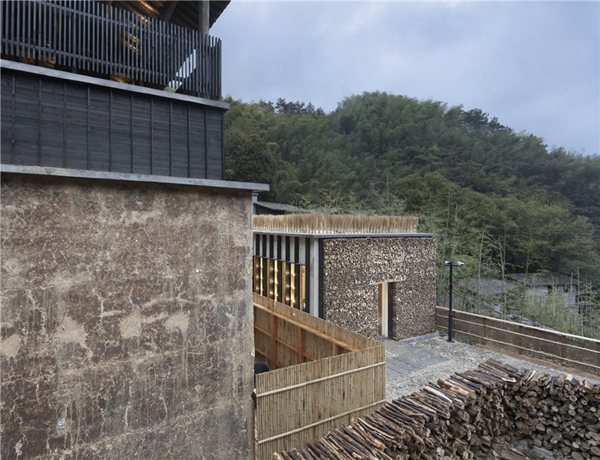Bookstores rewrite villages' stories

Two Yunxi bookshops in Shen'ao and Daijiashan villages, both in Zhejiang's Tonglu county [Photo by by Yao Li/Provided to China Daily]
Building connections
Architects prefer to use local materials, refer to the local traditional houses and hire local workers for renovation projects.
In Yunnan province, for example, construction workers are not professionals. They are farmers who work in the fields and only take on building work if new homes are required.
"It's a very traditional style of mutual assistance," says Hua Li, who designed the Xiadi Paddy Field Bookstore, a branch of Librairie Avant-Garde in East China's Fujian province.
Architecture in the countryside is often the fruit of people's wisdom accumulated over generations in a certain place. It is based on the knowledge of the local weather, natural resources and culture. One can learn a lot from the buildings by observing and understanding them, Hua says.
For example, in the ancient villages of East China's Anhui province, some details on the old houses are full of architectural clues, he adds.
The stairs connecting the ground to the second floor are divided into two parts. The first three steps are made of stone, followed by wooden steps. This is to prevent rising damp in late spring and summer.
There are many similar methods that we can borrow in traditional construction in modern design, Hua says.
For Zhang Lei, such bookstore projects in ancient villages build platforms that allow cities and the countryside to better communicate.
"Urban residents coming to the villages can see a better countryside through these projects, a different kind of nature," Zhang says. "Without these projects, visitors only experience the original village life, but with these projects, you can imagine a better future for rural areas."
In both Daijiashan and Chenjiapu villages, Zhang used local construction styles and materials to renovate the homes.
"Many local people in Daijiashan village borrowed our methods to build hostels. They might not necessarily think it beautiful, but they saw a better village through the bookstore," Zhang says.
"Villages need new ideas from the city, including aesthetic space, which, for villagers, is a new experience and offers enlightenment to a new lifestyle and different civilization.
"Such projects let people from both the city and the countryside see a better world and a better life, which is why these projects in the countryside matter so much."





 play
play